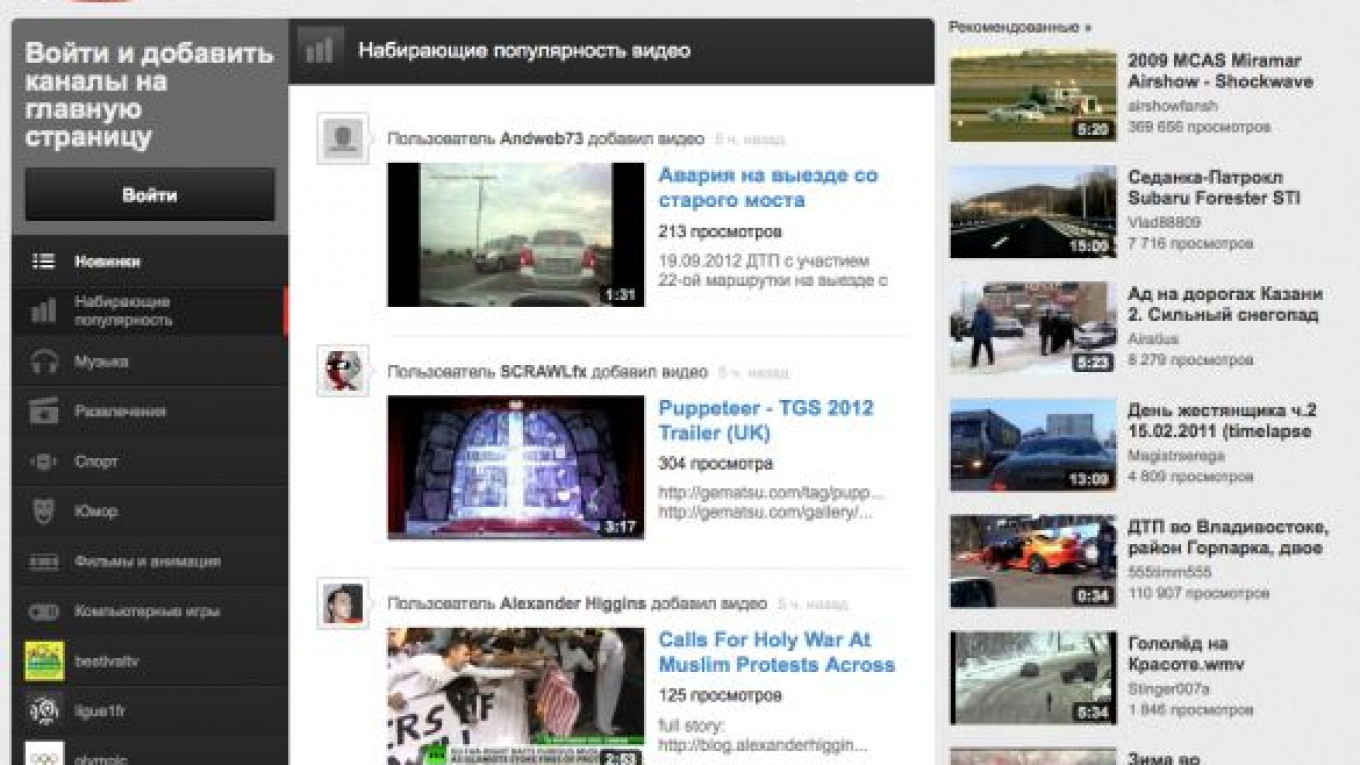Federal prosecutors said that Internet providers could be breaking extremism legislation by failing to block access to an anti-Muslim video clip that has sparked violence abroad.
The Prosecutor General's Office instructed regional prosecutors to warn Internet providers that they could be breaking a federal law on extremism by hosting websites with the "Innocence of Muslims" film trailer, Interfax reported Wednesday.
The extremism law states that organizations can be held liable for providing access to materials suspected of being extremist in nature.
Rostelecom announced in a statement early Wednesday that it had barred customers in the Omsk region from accessing YouTube after receiving a warning from local prosecutors a day earlier.
Omsk prosecutors wrote on their website that they had issued the same warnings to four other providers, including MegaFon, MTS and VimpelCom.
Senior politicians and government officials have complained that the low-budget "Innocence of Muslims" video could inflame interethnic tensions and should be banned for its extremist content.
Federal prosecutors are seeking a court order to ban the clip, which has dozens of versions on YouTube's Russian-language page and has garnered well over 1 million hits in total.
Rostelecom described the YouTube restrictions as "temporary" in its statement and said it was studying further recommendations from prosecutors and the Federal Mass Media Inspection Service. By Wednesday afternoon, no other Internet providers had apparently followed Rostelecom's lead in blocking YouTube.
The clip, which mocks Islam by depicting the Prophet Muhammad as lecherous and self-interested, has prompted protests across the Muslim world. Demonstrators in North Africa and the Middle East have targeted U.S. embassies and consulates, since the film originated in the United States, and ripples of discontent have spread as far as Europe.
Google, the search giant that operates YouTube, has refused to delete the 14-minute clip from its servers, despite requests from the U.S. White House, but said it would block the video in specific countries if local courts demand it.
French authorities said Wednesday that they would seek to thwart protests over the video and step up security at their embassies after a Parisian weekly published caricatures of the Prophet Muhammad, The Associated Press reported.
Related articles:
A Message from The Moscow Times:
Dear readers,
We are facing unprecedented challenges. Russia's Prosecutor General's Office has designated The Moscow Times as an "undesirable" organization, criminalizing our work and putting our staff at risk of prosecution. This follows our earlier unjust labeling as a "foreign agent."
These actions are direct attempts to silence independent journalism in Russia. The authorities claim our work "discredits the decisions of the Russian leadership." We see things differently: we strive to provide accurate, unbiased reporting on Russia.
We, the journalists of The Moscow Times, refuse to be silenced. But to continue our work, we need your help.
Your support, no matter how small, makes a world of difference. If you can, please support us monthly starting from just $2. It's quick to set up, and every contribution makes a significant impact.
By supporting The Moscow Times, you're defending open, independent journalism in the face of repression. Thank you for standing with us.
Remind me later.






